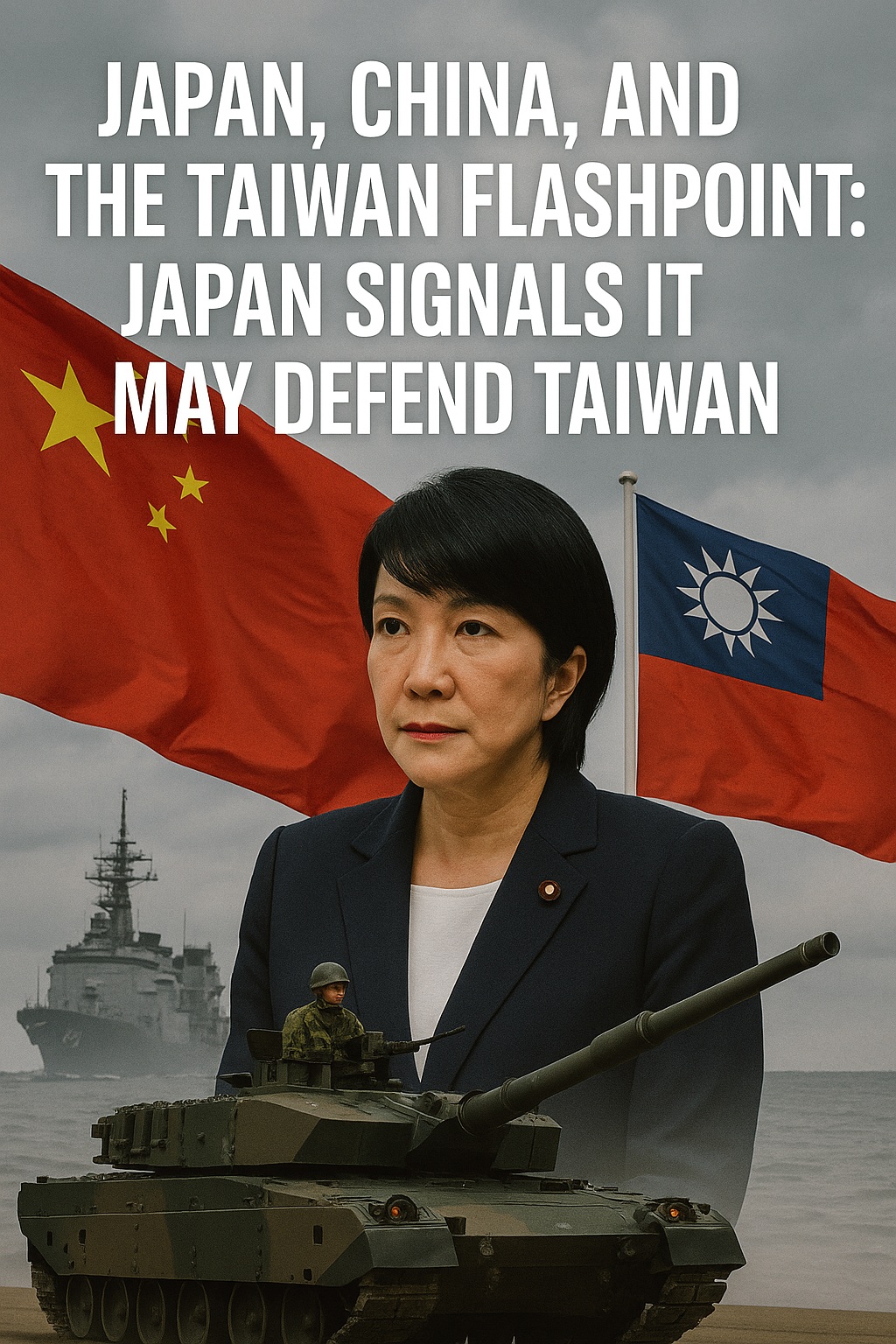Advertisement

By Tom Clifford
The most significant geo-political relationship is between the US and China.
The second is usually considered that between China and Japan.
Tokyo and Beijing are currently embroiled in a bruising row over Taiwan after Japan’s prime minister, Sanae Takaichi, suggested that her country could potentially become militarily involved in the event of an attempted Chinese invasion of the self-governing island.
China’s ruling Communist party claims Taiwan is a province and has vowed to annex it – by military force if it can’t convince or coerce Taiwan to accept what it calls “reunification”. But Taiwan is overwhelmingly opposed, and a Chinese invasion attempt could spiral into a regional or global conflict.
“The so-called Taiwan contingency has become so serious that we have to anticipate a worst-case scenario,” Takaichi said. From Beijing’s point of view these are incendiary words.
She said an attack on Taiwan by China could trigger the deployment of her country’s self-defense forces if the conflict was deemed to pose an existential threat to Japan. The southern islands of Japan are as close as 110km from Taiwan’s main island.
Right on cue, Beijing reacted with fury, casting her words as a “military threat” against China.
Japan’s postwar constitution forbids it from using force as a means of settling international disputes but a 2015 law – passed when Takaichi’s mentor, Shinzo Abe, was prime minister – permits it to exercise collective self-defense in certain situations, even if it is not directly under attack. Collective self-defense is a loosely defined phrase, and this is deliberate. The Japanese government wants to keep any definition abstract and open for interpretation. Ahhh, that word again, interpretation. Article 9, the war-renouncing clause of the Japanese constitution has been interpreted and re-interpreted and re-re-re interpreted as to be effectively gutted of its original intent.
The official English translation of the article is refreshingly clear.
“Aspiring sincerely to an international peace based on justice and order, the Japanese people forever renounce war as a sovereign right of the nation and the threat or use of force as means of settling international disputes. (2) To accomplish the aim of the preceding paragraph, land, sea, and air forces, as well as other war potential, will never be maintained. The right of belligerency of the state will not be recognized.”
Of course, the Taiwan narrative suits Beijing, allowing it to beef up its military capability. A key anniversary will be celebrated in 2027 when Beijing marks the 100th anniversary of the founding of the People’s Liberation Army.
There is another ingredient to add to the mix. For the first time since 1979 – when Washington formally recognized Beijing and downgraded its ties to Taipei, even as it pledged to help the island defend itself – strategic ambiguity is looking more like strategic paralysis. Would the US, under Donald Trump, come to Taiwan’s defense?
Policies are often presented in poetry, and government is normally conducted in the less-idealistic manner of prose. But Taiwan exposes the deep mistrust still dominating the region. A scenario where Japan sends troops to defend Taiwan while the US sits out the conflict is almost unthinkable. Are we at the dawn of the era of the unthinkable?
###
Related articles:
While Washington Threatens, Beijing Invests: China’s Growing Influence in the Caribbean
China at a Crossroads: From Optimism to Uncertainty
China Eyes America’s Backyard
###
ADVERTISEMENT







